Guest Writers
ANAAMLIE WRITES: Ghana’s political kitchen and the hungry outsiders

The writer, Anaamlie Agulijam
Prisons are typically communities of diverse people – religious, racial and even different nationalities. In that community of sinners, however, there is a strong bond of love and friendship. Inmates make friends for various reasons. Sometimes alliances are built for the benefit of those who belong to a particular clique.
It is said that inmates assigned to take charge of relatively preferred areas like the kitchen, end up facilitating the inclusion of their friends, and inmates of common leanings. If a White prisoner runs the kitchen, it may soon be populated by friends or White inmates. The implication is that they secure more and better food for their members, among other benefits the kitchen affords. The worse form of this scenario is the what is practised in our politics and governance — winner-takes-all.
When the President of Ghana is assigned to the kitchen of the republic, expect Ghanaians, or specifically, friends, relatives or political affiliates to work in the kitchen too. Over several political tenures, the Presidents’ appointees have been political party supporters, sympathisers and backers. This is despite the loud proclamation by the newly-elected presidents that they would “be the father for all.” Those in opposition often realise they are orphans almost immediately after the elections when youth of the winning party go on rampage to seize public assets and chase public officials with matchets.
Presently, those in President Nana Addo Dankwa Akufo-Addo’s kitchen include his 110 ministers of and deputy ministers, the nearly 250 metropolitan municipal district Chief executive (MMDCEs), several board appointments, heads and deputies of public agencies, organisations and corporations as well as many more direct and indirect political appointments carried out in consultation with Council of State and other statutory state bodies.
This practice amounts to a monopolisation of state resources, facilities and opportunities by the ruling political party, thereby alienating members of the opposition parties and the so-called “floating voters” in the country. Practice is not new. And it does not appear it will end soon. It has created a sense of desperation and raised the stakes in political power. It has been condemned by civil society groups. Politicians only condemn it when they are in opposition. The accuse the governing party of constituting a government of family and friends, but when they take over, it worsens.
Former Executive Director of the Center of Democratic Development (CDD), Prof Emmanuel Gyimah Boadi, recently said governance in Ghana was continuously failing the test of true democracy. he said the winner-takes-all governance had moved to an even damaging ‘winner knows all’.
Conceptually, Ghana is a neo-presidential state – a hybrid of the presidential and parliamentary systems. However, the constitution delivers overwhelming power in the hands of the Executive arm of government. They indirectly control of almost every sector of governance in the country. Evidently, a change in government is often marked by raucous bouts of change in leadership from statutory bodies to public toilets and road tollbooths. It goes without saying that the takeover and even appropriation of central and local power are not unique to Ghana, except that it is diluted or heightened in different jurisdictions.
In advanced democracies like USA and UK, winner-takes-all politics is evident but is not as acrimonious as ours. However, that does not imply reduced intensity and their abhorrence of it. Indeed, the 19th Century was characterised by the USA spoils system; from the 1820s until the Civil Service reforms of 1883 among others. Political historians point to Senator William Marcy’s defence of President Andrew Jackson, when he said that “to the victor belong the spoils of the enemy”.
Marcy’s reference to spoils meant political appointments, diplomatic positions among others are within the President’s remit. Under certain dispensations, “lowly” positions were affected; for instance, Benjamin Harrison replaced up to 31,000 postmasters in one year ostensibly to run his government efficiently. Today, critics of the US government’s structure refer to an indirect system of reciprocity by the ruling government to political party backers and financers. Clearly, the winner-takes-all politics in the global north pre-dates independent Ghana and even Africa.
This kind of politics in Ghana alienates and marginalises the competent members outside the ruling government or its tacit sympathisers and backers. Consequently, it inhibits inclusive governance and polarises the nation. Political party supporters express blind commitment and support for government policies and actions. It also creates a sense of entitlement, and this often manifests into violence when some people cannot legally take over a toilet or a tollbooth.
In return for their “loyalty” and service to the party, the supporters expect to receive prominence in public and civil service job recruitments, entrepreneurial support among others. This phenomenon deprives qualified people of such opportunities, while unqualified persons are offered these important positions out of political patronage – deepening the long-held perception that our government is riddled with square pegs in round holes. These appointments are not under any obligation to perform well.
The winner-takes-all in does not engender policy continuity because policies and projects are seen to belong to the government of the day, not the state. Opposition political parties are often excluded from being key stakeholders in the policy planning and implementation process thus resulting in a low buy-in, hence the high potential of discontinuity in the event of a change in political power.
For instance, in 1995, the National Democratic Congress (NDC) adopted a long-term plan called “Vision 2020”. Bizarrely, the New Patriotic Party (NPP) abandoned the plan, upon winning the 2000 Presidential and Parliamentary Elections. Perhaps the most telling form of this was on 30th September 2001, on a talk show screened on GTV, the nation’s TV broadcaster, when the then Minister of Finance, Mr. Yaw Osafo Maafo, affirmed, “As far as I am concerned, the Vision 2020 programme is dead”.
Later, the NPP government introduced the four-year Senior High School (SHS) programme, against the traditional three-year programme. The NDC changed it to a three-year programme after capturing power. The fourth republic of Ghana is littered with immaterial name changes of state buildings, inconsequential to the nation’s development. It is worth mentioning the financial and technical resources employed in the preparation of the forty-year development plan (2018 – 2058), is bound to suffer from the same discontinuity disease that plagues the nation.
A total eradication of the winner-takes-all politics is quite a stretch; primarily because it is a somewhat natural outcome of multi-party politics. Proponents of this type of politics often suggest that “people mobilise best towards a vision when they have been part of the forming”. The defence for like-minded people, sometimes involved in the preparation of the party’s manifesto and the eventual blueprint for governing the nation appears reasonable. That notwithstanding, the hijack of the state and potential state capture by the backers of the ruling government needs to be moderated.
Our nation needs to rethink its style of government to a proportional representation system. Unlike the majoritarian system, which literally delivers total power to the ruling party or the parliamentary majority, the proportional representation system reduces marginalisation among minority parties and promotes inclusive governance. This approach promotes consensus-building and cross-party support for policies and decision making. Such reforms would require constitutional amendments.
For example, citizens should elect their MMDCEs. Heads of public enterprises must be elected by an independent body of professionals. Such a change would mark a positive departure from the ongoing fractious practice of the President solely appointing the CEOs and Board members of State Owned Enterprises (SOEs).
The Judiciary and Legislative arms of government must serve as vigilant watchdogs over the Executive to ensure that there is no abuse of power by the Executive or the President. Historically, the dominance of Ghana’s Legislature by Members of Parliament from the ruling government and presidential influence in the appointment of judges to the nation’s courts should not dilute their oversight responsibilities.
The Political Parties Law (Act 574 of 2000) should be enforced. Funding of political parties must be transparent and carried out ethically. Additionally, the incumbency advantage of ruling governments must be curtailed to prevent the expenditure of state resources during campaigns, which are not fair to their opponents.
The winner-takes-all politics is part of Ghana’s political culture. The response by proponents that people mobilise best towards a vision when they have been part of “forming” it, pales in comparison to be deleterious to national development. The 40-year long-term development plan presents a sustainable means of promoting inclusive governance. Governments must respect the system and not abuse the power of the State to their advantage because it leads to corruption and costs a great deal to the country.
Our conditions, like inmates of a prison, is already bad. When we allow and promote a political system that allows some people to eat while the rest stand and watch, the hungry might one day besiege the kitchen. And we might not be able to contain the chaos or political turmoil that might create.
The writer, Anaamlie Agulijam, is a national service person with the Ministry of Foreign Affairs and Regional Integration. Her email address is [email protected]

-
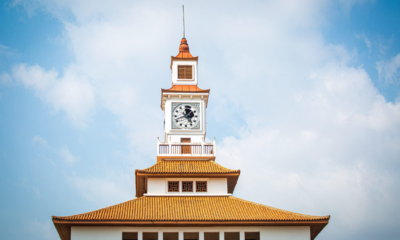
 Random Thoughts9 months ago
Random Thoughts9 months agoA Dutch Passport or a Ghanaian PhD?
-

 Foreign News10 years ago
Foreign News10 years agoEvery Animal Meat Is Not Beef! See All Their Names
-
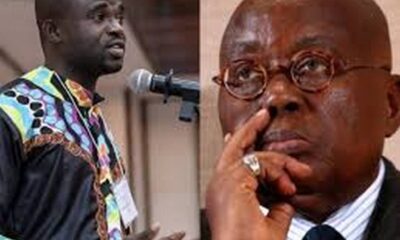
 Manasseh's Folder10 months ago
Manasseh's Folder10 months agoManasseh’s Praise and Criticism of Akufo-Addo’s Action on the SML Scandal
-
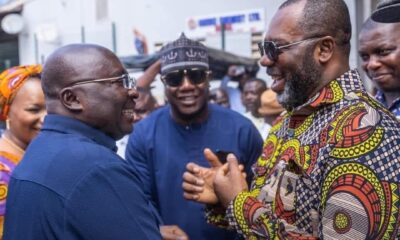
 Manasseh's Folder8 months ago
Manasseh's Folder8 months agoIs Napo Arrogant? And Does It Matter?
-
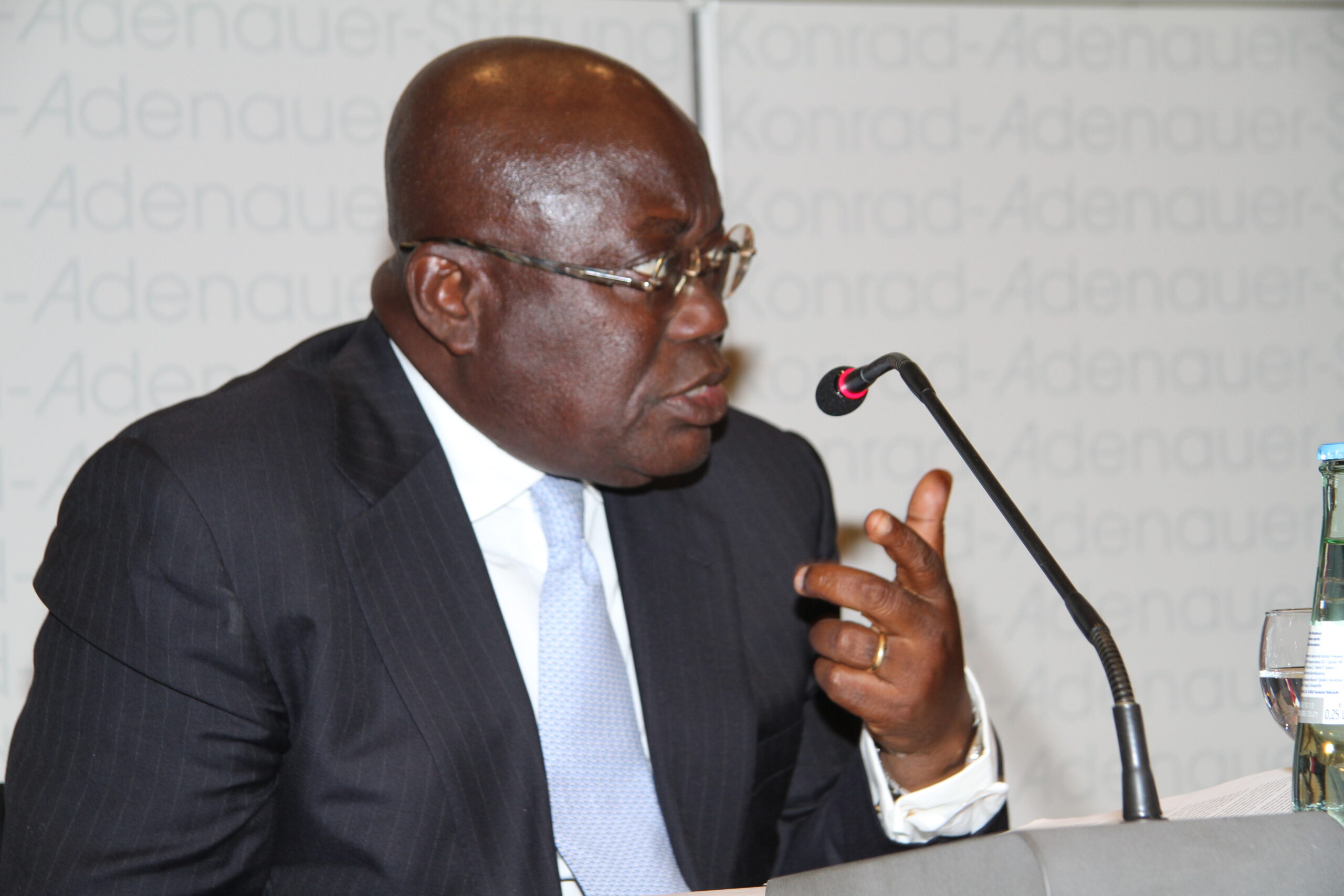
 Guest Writers8 years ago
Guest Writers8 years agoProf. Kwaku Asare writes: Nana Akufo-Addo has no law degree but…
-
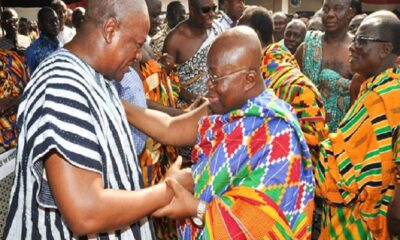
 Manasseh's Blog Posts7 months ago
Manasseh's Blog Posts7 months agoWho Started Free SHS?
-

 Anti-Corruption9 years ago
Anti-Corruption9 years agoMANASSEH’S FOLDER: Unmasking Afenyo Markins, NPP’s apostle of integrity
-

 Manasseh's Folder9 years ago
Manasseh's Folder9 years agoEXCLUSIVE PHOTOS: Manasseh Azure Awuni marries “Serwaa”